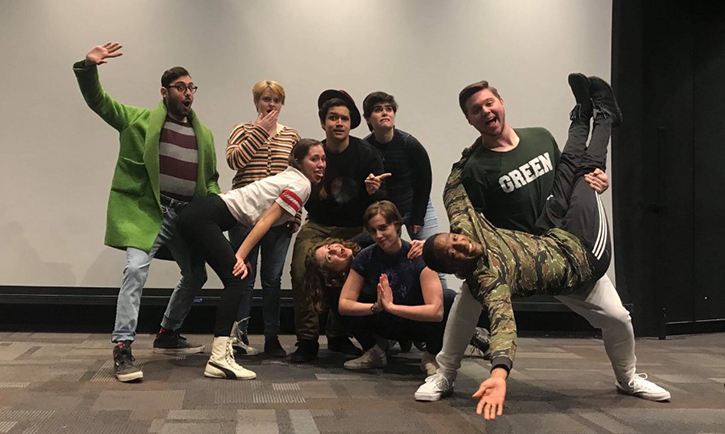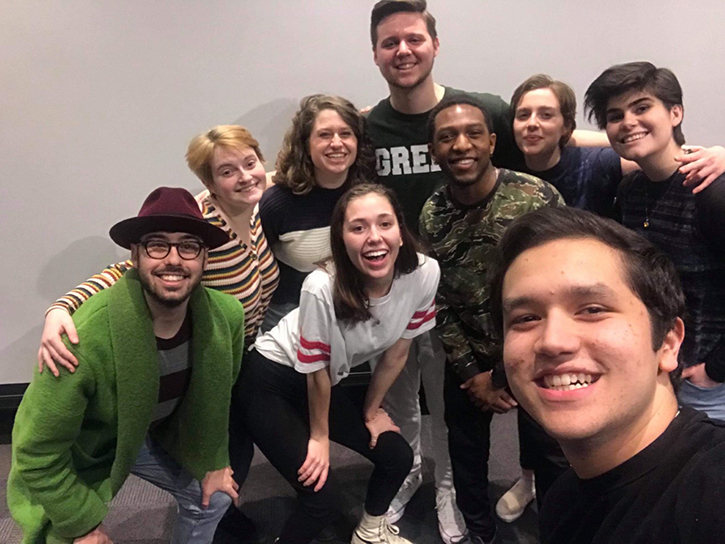Give members of the Mason Improv Association a word—any word—and watch what happens.

Members of the Mason Improv Association get more out of the experience than just acting. Photo by Marcus Sharnoff.
For George Mason University senior communication major Morgan Smalley, doing improv is about more than creating something out of almost nothing. It has given her more confidence in the classroom.
“One thing that improv has helped me with when it comes to schoolwork is getting the courage to just start,” said Smalley, who is also president of the Mason Improv Association. “Often with essay writing, it can be difficult to get that first sentence on paper. It feels like it has to be perfect. Improv has helped me accept that perfectionism is not always the way to go.”
Though listed as a student organization under the School of Theater, Mason Improv is not just for actors or theater majors. With weekly practices and monthly shows, the organization is open to any student who wants to learn something new or just have fun, though the performance team is created through tryouts.
At the start of each show, a cast member asks the audience for a word, any word, to be used as the topic for a skit created on the spot.
At a recent show, “knight,” “penguin,” “glitter” and “slime” were some of the many suggestions. Using “slime” as the opening theme, two cast members immediately got busy “creating” their own slime recipes, and soon the whole cast joined in.
Cast members also surprised the audience by switching up gender roles, assigning female cast members to be male characters, and vice versa. Because there is no organized script, each of 10 cast members has an equal chance to jump into the act. Given the hectic nature of performing on the spot, not every scene works, but the shows are fast-paced and exciting.
“Our major goal this year is to become confident on stage and to support each other no matter what the circumstances of the scene are,” Smalley said.
Every Sunday for two-and-a-half hours, Mason Improv holds practices where cast members improve acting skills and get to know each other better. That familiarity is important when they must think quickly and play off each other’s roles during performances, Smalley said.
“So, we generally start our rehearsals by talking about our days and connecting as human beings,” she said.
After that, “we’re creating characters continuously for two-and-a-half hours,” said sophomore theater major Tylor Goshorn. “Students who are in [Mason Improv] become hyper creative, in my opinion.”
There is also a social aspect to the organization.
“People who I have met through [Mason Improv] have become my closest friends since coming to college,” Smalley said. “I’ve found a network of people I know I can rely on.”

Mason Imrpov Association President Morgan Smalley (back row, third from left) says the group's goal this year is to "support each other [on stage] no matter what the circumstances of the scene are." Photo by Marcus Sharnoff.
